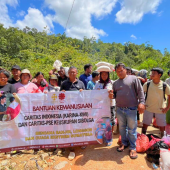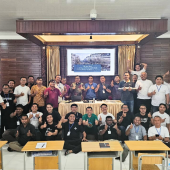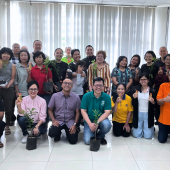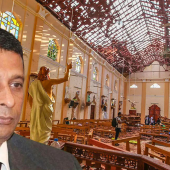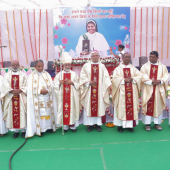First Batak Bishop and Pioneer of Indonesia’s Local Church, Dies at 91
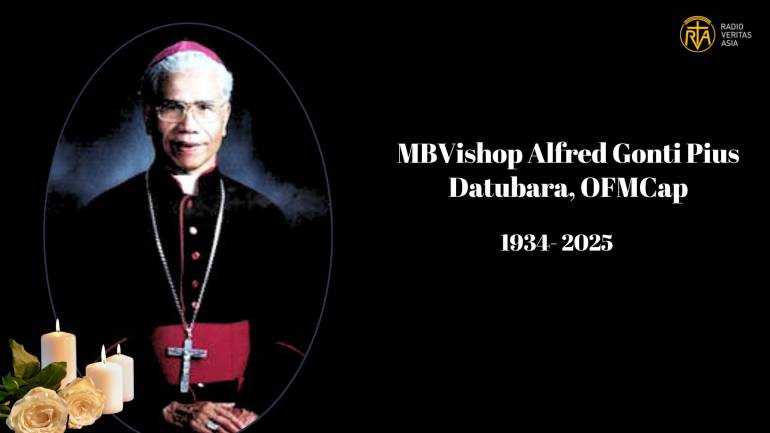
Msgr. Alfred Gonti Pius Datubara, OFMCap, Emeritus Archbishop of the Archdiocese of Medan, Indonesia, passed away at St. Elisabeth Hospital, Medan, on Friday, October 17, 2025, at the age of 91.
He was the first priest and bishop of Batak descent, the indigenous ethnic group of North Sumatra, and a pioneering figure in the indigenization of the Catholic Church in Indonesia.
During his 33 years as Archbishop of Medan, Msgr. Datubara was widely regarded as the architect of the local Church in North Sumatra. His leadership brought remarkable growth and vitality:
-
The Catholic population expanded rapidly. By his retirement in 2009, the Archdiocese of Medan had 47 parishes, more than 1,300 outstations, and over half a million Catholics.
-
The majority of these communities were served by local clergy, including Batak Capuchins and members of various religious congregations.
Early Life and Vocation
Born in Lawe Bekung, Kutacane, Southeast Aceh, on February 12, 1934, Alfred Gonti Pius was the fourth of eight children of Petrus Datubara and Louise Sihombing, pioneers among Batak Catholic migrants to the Alas Region.
His father, a devoted catechist, often prayed that one of his sons would become a priest, a prayer fulfilled in young Gonti.
In 1951, he entered the Christus Sacerdos Minor Seminary (SMCS) in Padang, West Sumatra, and later continued his formation in Pematangsiantar, North Sumatra. Of 17 students in his class, he was the only one to persevere until priestly ordination in 1964, conferred by Msgr. Antoine Henri Ferrerius van den Hurk, OFMCap, then Bishop of Medan.
His ordination, attended by more than 10,000 faithful in Pematangsiantar City, some six hours from Medan, was a historic moment for the Batak Catholic community, marking him as Indonesia’s first Batak priest and the first SMCS alumnus to be ordained.
A Pioneer of Local Leadership
After serving in several parishes and at Medan Cathedral, Fr. Datubara pursued studies in missiology at the Pontifical Gregorian University in Rome (1967–1968). On May 24, 1976, Pope Paul VI appointed him Archbishop of Medan, making him the first Batak bishop in the world.
The establishment of SMCS in 1950 had aimed to prepare indigenous clergy for Sumatra, a vision fulfilled in Msgr. Datubara. Under his leadership, the local Church grew in maturity, self-reliance, and missionary zeal.
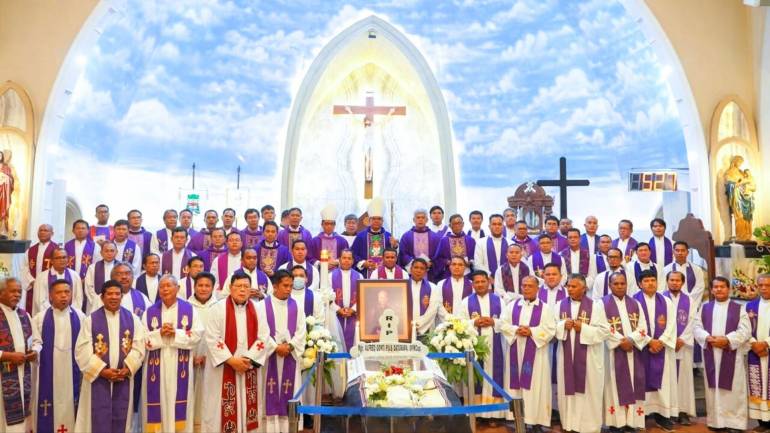
Omnibus Omnia – “All Things to All People”
His episcopal motto, Omnibus Omnia (1 Corinthians 9:22), was more than a slogan, it was the guiding spirit of his ministry.
“He dedicated himself to the poor and marginalized,” recalled Felix Sitorus, a former seminarian. “He transformed all Catholic elementary schools into diocesan institutions so that no Catholic child would be deprived of education. He also supported the founding of St. Thomas Catholic University of Medan,” he added.
True to his Franciscan roots, Msgr. Datubara invited numerous religious orders to serve in North Sumatra, fostering schools, hospitals, orphanages, and training centers. Deeply concerned for creation, he even joined environmental protests in Porsea in 2003 against ecological destruction near Lake Toba, long before Pope Francis issued Laudato Si’ (2015).
A Bishop for the Marginalized
Among the poor, Msgr. Pius was affectionately known as “the bishop of last hope.” His residence on Jalan Imam Bonjol, Medan, was always open to those in need.
Many remember his quiet acts of generosity, sharing his own income, defending the oppressed, and making difficult decisions out of compassion rather than convenience.
“Throughout 33 years of episcopal service (1976–2009), Msgr. Pius built the Church of Medan into a living home, open, compassionate, and deeply human,” wrote Mr. Sitorus.
Enduring Legacy
Msgr. Alfred Gonti Pius Datubara leaves behind a lasting legacy of faith, humility, and love—a shepherd who embodied the Gospel with simplicity and courage. His life continues to inspire generations of Catholics across Indonesia and beyond.
Radio Veritas Asia (RVA), a media platform of the Catholic Church, aims to share Christ. RVA started in 1969 as a continental Catholic radio station to serve Asian countries in their respective local language, thus earning the tag “the Voice of Asian Christianity.” Responding to the emerging context, RVA embraced media platforms to connect with the global Asian audience via its 21 language websites and various social media platforms.









